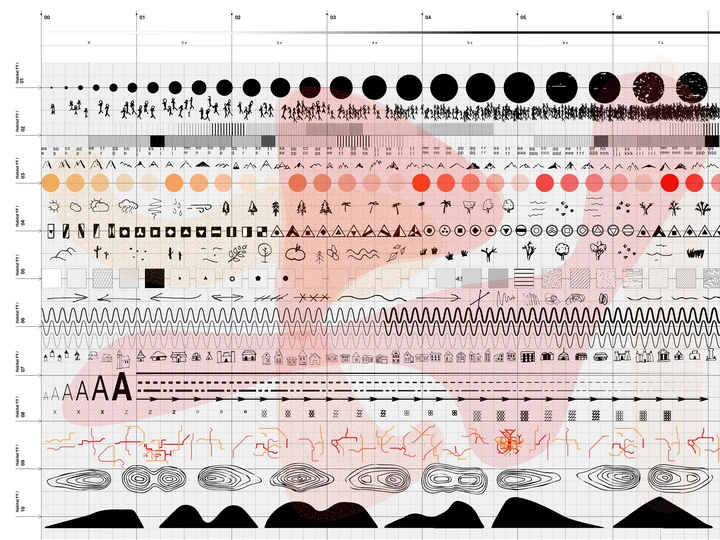(de)SIGN: Mapping the Un-Mapped

claudia orsetti
The initiators of this project are Claudia Orsetti and Caterina Micucci, both architects and curators with interdisciplinary approach and knowledge. After more than fifthteen years focusing on different experiences and realities around the world, Claudia and Caterina started a series of interdisciplinary collaborations move across research, exhibitions and public events.
Claudia is an architect who graduated in 2010 at the Mendrisio Academy of Architecture in Switzerland, with professor Valerio Olgiati. She is a founder of studio.traccia, a multidisciplinary platform for architecture and design, based in Milan..Her multicultural and multidisciplinary profile towards architecture comes from the consolidated collaborations with some of the most relevant architectural practices from London and Tokyo. Claudia has led various projects, from urban strategies to detailed design phases, in complex and articulated processes, while she also created and curated a series of public talks in collaboration with Alcova, Board of Architecture Milan and NABA. She is also a photographer and her photographs have been published and exhibited in various platforms, including Triennale di Milano and Rotterdam Photo Festival.
Caterina is an interior architect, educator and curator based in Amsterdam. She graduated from the Architecture University of Venice (IUAV) in 2010 and received her Ph.D in Theory of Architecture in 2015. She is specialized in narrative design, placemaking and community building, with a special focus on design affecting people’s behavior, emotional engagement with architecture and perception of space. She has extensive experience in exhibition design, scenography and curation and she is interested in collaboration with museums and cultural institutions. Caterina has taught at Melbourne University of Architecture, School of Architecture and Design (UNICAM), and she is currently guest professor at Fontys Academy.
Within the last twenty years, Milan has undergone significant urban transformation through the introduction of large capital investment. Particularly, the liberal market, technological development, and a series of structural reforms have turned Milan into an economic product, where the city is losing its identity resulting in a characterless framework that coincides with a generic global city. The asymmetric dialogue between the political vision of the city, its urban development and the participation and needs of its citizens seems to be increasing exponentially. This mechanism tends to expel residents, who do not belong to a certain status, and replace them with temporary inhabitants who represent an homogeneous global culture. Those new inhabitants end up consuming the city rather than living it, passively contributing to its change without the need to preserve its memory.
This project aims to develop a methodology through participatory mapping for cities where graphic [de]SIGN becomes a tool for knowledge creation and substantiate a cohesiveness between the community, collective decision making and the urban planning process. Taking Milan as a case study, our proposal wants to pose alternatives to the languages and the images of existing power structures, assuming the graphic signs as cartographic grammar, able to convey a set of multiple points of view, perceptions, knowledge, storytelling and experiences of the person making the map. Subverting the general meaning of mainstream maps, that usually represent the views of the dominant sector of society, the proposed project aims to obtain a permanent and always updatable archive of knowledge coming from various sources through the [de]SIGN methodology. If knowledge is a description of the world, and representation is the way knowledge is encoded, then different types of knowledge require different types of representation. This way, the act of mapping, transforms participation into self-determination.